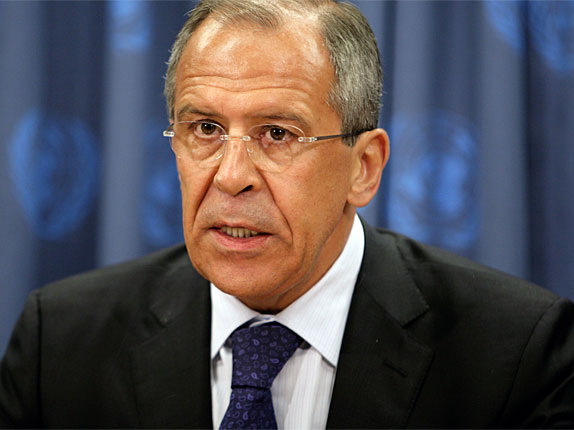Why are UNSC resolutions on Nagorno Karabakh not implemented?

By Cavid Veliyev
During a Jan. 17 2017 press conference in Moscow, Russian Foreign Minister Sergey Lavrov said conducting military operations in Nagorno Karabakh was not an internal affair of Azerbaijan.
His words raised heated debates in Azerbaijan that Russia does not recognize Nagorno Karabakh as a territory of Azerbaijan, with Azerbaijan Foreign Minister Elmar Mammadyarov answering Sergey Lavrov by reminding him of U.N. Security Council resolutions.
“I would like to note that the whole international community recognizes and supports the territorial integrity and sovereignty of Azerbaijan... In connection with the settlement of the conflict, international organizations have adopted numerous decisions and resolutions based on the norms and principles of international law,” he said.
The world order is based on U.N. principles and there are two main internationally legally binding documents are U.N. Charter and Security Council resolutions. According to the U.N. Charter, states’ territorial integrity is more important than people’s right to self-determination. In this regard, the U.N. Charter applies to the Nagorno Karabakh conflict, as well as to Azerbaijan territorial integrity.
Secondly, the U.N. Security Council adopted four resolutions regarding the Nagorno Karabakh conflict in 1993 that confirms the occupation of Azerbaijan territories by Armenian armed forces. Resolutions 822, 853, 874 and 884 - adopted in 1993 by UNSC - call for the withdrawal of Armenian troops from Kelbajar, Agdam, Fizuli, Jabrayil, Qubadli and Zangilan.
Moreover, the U.N. General Assembly adopted a resolution on March 14, 2008 reaffirming the territorial integrity of Azerbaijan and demanding the withdrawal of all Armenian armed forces from the occupied territories. The General Assembly also reaffirmed the inalienable right of the Azerbaijani population to return to their homes.
The Minsk Group was established in 1994, within the framework of the OSCE, aiming to play an arbitration role in the Nagorno Karabakh conflict resolution. The Minsk Group has 17 members, including Turkey, but only three - Russia, France and the U.S. - hold co-chair positions and have been actively dealing with the Nagorno Karabakh conflict since 1995. However, the co-chairs have done nothing seriously to end the occupation.
While the status quo is favorable for Armenia, Azerbaijan remains unhappy with this situation. It has therefore tried to change the status-quo and insert the Nagorno Karabakh issue into the agenda of different international organizations such as the Council of Europe, the European Parliamentary Assembly, the Non-Aligned Movement, the Organization of Islamic Cooperation (OIC) and the Turkish Council.
The Non-Aligned Movement has adopted number of resolutions related to the Nagorno Karabakh conflict. The adopted documents call for the resolution of the conflict respecting Azerbaijan’s territorial integrity, sovereignty and internationally recognized borders.
The OIC has also adopted several resolutions related to the Nagorno Karabakh conflict acknowledging Armenia as an aggressor, discussing financial and economic assistance to the victims of the aggression, and condemning the destruction of historical Islamic monuments in Azeri territories.
The Nagorno Karabakh conflict is also on the agenda of regional organizations such as the Collective Security Treaty Organization (CSTO) and the Eurasian Economic Union, of which Armenia is a member but Azerbaijan is not. Notably, Armenia’s “allies” in these organizations refrained from supporting it during the April clashes in 2016, and the Armenian position has been seriously weekend since then in both organizations.
CSTO members have still not been able to appoint a secretary general, as mandated by the rotation mechanism enshrined in the organization’s charter. According to this mechanism, the new secretary general should be Armenia, but Belarus and Kazakhstan allegedly oppose it because of the Nagorno Karabakh conflict.
Thus far Armenia has not implemented any resolution and neither has any member of the U.N. Security Council implemented resolutions. Only Turkey has closed its borders with Armenia because of the occupation of Kelbajar, while Pakistan does not recognize Armenia as an independent state because of its occupation of Azerbaijani territories.
Russia, as a co-chair of the Minsk Group and member of the U.N. Security Council, also has a responsibility to implement the resolutions, which is why Azerbaijan Foreign Minister Mammadyarov criticized Russian Foreign Minister Lavrov for not being serious in this issue.
To sum up, the resolutions adopted by international organizations on conflicts are very important, as they are one of the main sources of international law. International principles and the resolutions of international organizations are in favor of Azerbaijan, and there is no example of an international organization that has adopted a resolution in favor of Armenia.
This is why Russia and other strong members of international system are obliged to fulfill the resolutions of international organizations.
Dr. Cavid Veliyev is the head of Foreign Policy Analysis Department, Center for Strategic Studies.














